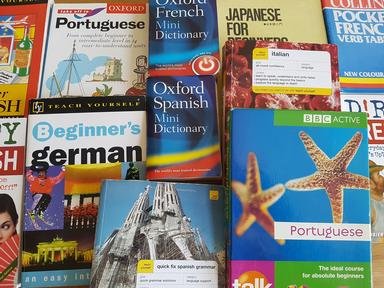Quiz Answer Key and Fun Facts
1. Which of these languages uses "merci"?
2. "Gracias" is from what language?
3. It is also a song title. "Danke schön" is ...?
4. An easier one perhaps: "grazie"is from what language?
5. Sounds familiar ... "Obrigado' is for a man, and "obrigada' is for a woman in which language?
6. In which language do they use "dank u"?
7. Here is thank you in one of my favorite languages. "By yar la." Can you guess which one?
8. The next thank you we encounter is "ar khun". You might hear it on the Tonle Sap River.
9. In which language does one use the word "spasiba" (pronounced "spa see ba") to say "thank you"?
10. Ready for the next one? "Hvala" is used in which language?
11. The language for this "thank you" sounds like "djen koo yeh".
12. "Koszonom" would be used in which language?
13. "Multumesc" would be the way to say "thank you" in which of the following languages?
14. If someone said it, it would sound like, "ef ha ree sto". Which language would it be?
15. This is a long thank you: "Tesekkür ederim". You will hear it every day in what country?
16. Looks like "todah" when written in English. Which language is it?
17. In which language does "shukran" mean "thank you"?
18. "Asante" is the way you say it in this African language.
19. You will hear "shoo kree ya" when speaking which language?
20. In which language would one say "shay shay nee"?
21. "Kamsa hamnida" is thank you in what language?
22. In this country, you would hear, "terima kasih". Where am I?
23. I say this every day: "khob kuhn". Which language is it?
24. Looks like it should be pronounced, "come on" but it is actually "cam on". Which language says "thank you" like this?
25. Well, to finish off this quiz I would like to say to all of you who took the time to give it a try, "ce zu tin ba deh". What language is it?
Source: Author
reggaejames
This quiz was reviewed by FunTrivia editor
bloomsby before going online.
Any errors found in FunTrivia content are routinely corrected through our feedback system.


